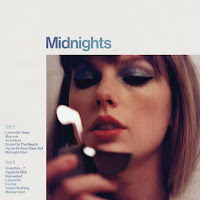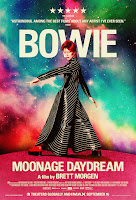My wife and I released a new episode of our podcast, which you can listen to here if you're interested!
Movies
Lightyear (2022)
I went into this expecting it to be bad, and it was, but I think this actually would have been a tolerable, if forgettable, piece of children's sci-fi if it weren't for the fact that it's about the "real" Buzz freaking Lightyear. It's a weird bind that I'm sure the filmmakers found themselves in making this movie: scrubbed of its forced connections to the Toy Story franchise, the screenplay is not nearly good enough to make this movie be notable as a standalone film, but the Toy Story connections that make it notable unmistakably flag this movie as a piece of cynical corporate brand management as opposed to the sincere work of middlebrow family entertainment it wants to be. I'm sorry, but I just cannot suspend my disbelief enough that I can hear the characters in this movie on multiple occasions saying word-for-word memorable lines from the first Toy Story and not come to the conclusion that some middle-management Disney husk with an MBA ghost-wrote the film. It's like watching that unbearable pre-show Regal ad where everybody just says random famous movie lines, only at feature length. Also, on the animation front, this is a major step back from the past few Pixar films' attempts to broaden the studio's style outside of their familiar aesthetic. We're in mildly cartoony photorealismville again, baby, and it's boring. Complete dreck. Almost certainly the worst Pixar movie—or at least the most dispiriting. Grade: C-
Bride of Chucky (1998)
Easily the best Chucky movie up to this point in the series. Chucky as an entity was never particularly scary to me anyway (even when I was a kid), so this movie's abandonment of any semblance of "scary" plus its commitment to weird camp and outsider sensibilities helps it sail past every previous movie in the franchise. Explicitly tying itself to The Bride of Frankenstein should be a movie-ruining bit of hubris, but it's absolutely deserved here, as it embraces that early classic's penchant for the playful and absurd over the spooky. Plus, my god, the voice acting of the central duo: the addition of Jennifer Tilly as functionally the lead is an incredibly canny move, and Brad Dourif puts in his series-best performance. Also, barely related, but I just happened to click on Dourif's Wikipedia page when writing this up, and I realized he plays Wormtongue in Lord of the Rings, which is kinda blowing my mind at the moment; I should have made that connection before the fourth entry in this series. Grade: A-
Seed of Chucky (2004)
What an absolute blast. Some of the running bits don't really work (e.g. the "Made in Japan" thing or Jennifer Tilly's eating disorder), but for the most part, this is intoxicating and ridiculously fun and has the good sense to realize that two Jennifer Tilly performances are better than one. Whereas Bride of Chucky explicitly presents itself as the Chucky analog to The Bride of Frankenstein, Seed openly claims to be the Glen or Glenda of the franchise, which is 100% the logical conclusion to the camp flourishes of the previous film. Along the same lines, I gotta hand it to this movie for having the guts to evoke one of the most repulsive parts of Pink Flamingos (the kidnapping/insemination plot). Speaking of insemination, people talk about weird Hollywood synchronicity like the time there were two Snow White movies in the same year, but I've never heard anyone talk about the much more improbable parallelism of 2004's duology of CGI sperms (i.e. this and She Hate Me). A true unicorn pairing. Grade: A-
Curse of Chucky (2013)
A soft reboot after the franchise reached the delirious heights of Bride and Seed was not at the top of the list of things I would want to see out of the follow-up. But allowing for that, this was really solid—probably the most overtly "scary" (relatively—Chucky's not very scary) Chucky movie since the first one, and it does a lot of good with that aim to return to the series's horror roots. It's set in a big, spooky house, which is a tremendous setting, and appropriately, the direction is the series's most baroque, filled with moody lighting and sweeping steadicam shots (maybe my favorite direction of the series). And for us lovers of post-Child's Play 3 Chucky, the last ten minutes or so does let us know that Don Mancini hasn't forgotten about us. So, a good time, if not the great time delivered by its immediate predecessors. Grade: B
Books
A Gathering of Days; A New England Girl's Journal, 1830-32 by Joan W. Blos (1979)
What if a children's book looked exactly like a child's journal from the 1830s? Impressively committed to its conceit, to the point that it's willing to be extremely boring in the interest of looking like a historical document. If that sounds cool to you, you can listen to my wife and I talk about it on our podcast. Grade: D
Music
Taylor Swift - Midnights (2022)
I've heard people call this album a "grower," and it certainly has the hallmarks of that: low-key production, murmured melodies, few open bids for radio play. However, after having spent a week with this album, I'm feeling like it's the opposite... a shrinker? I'm sad to report that the more I listen to it, the thinner Midnights feels. Everything on here is something that Taylor Swift has done elsewhere (and better): the nocturnal Antonoff production hearkens back to the simmering, weary back-half of Reputation and the warmth of the Lover deep cuts; the semi-ironic self-critique of "Anti-Hero" is a less sardonic revision of "Blank Space"; "Vigilante Shit" and "Karma" again evoke Reputation, but this time the cringey, forced "bad girl" camp villainy. I wouldn't mind as much if the writing on these songs were actually good, but a lot of these lyrics feel like first-drafts, with a main idea only barely developed (and certainly not as idiosyncratic and nuanced as I'm used to hearing from Swift). That's to say nothing of the outright howlers, like the already infamous "sexy baby" line on "Anti-Hero" or how Taylor Swift still seems to employ the word "fuck" like a middle-schooler giddy about saying grown-up words. The melodies on the tracks fare better, but there isn't a single song where I enjoy both the melody and the lyrics, which is disappointing coming from Taylor Swift. It's disappointing after folklore seems to usher in a new phase of maturity and hindsight for Taylor Swift that she's come up with an album that feels like ersatz Taylor Swift, mimicking the rhythms and themes of past successes without the spark of what made those earlier works cook. I guess we'll see how I feel after spending a little more time with this—maybe this will prove to be a true grower after two weeks, or ten. But right now, this strikes me as one of Taylor Swift's weakest album, if not her outright worst. Grade: C+





























